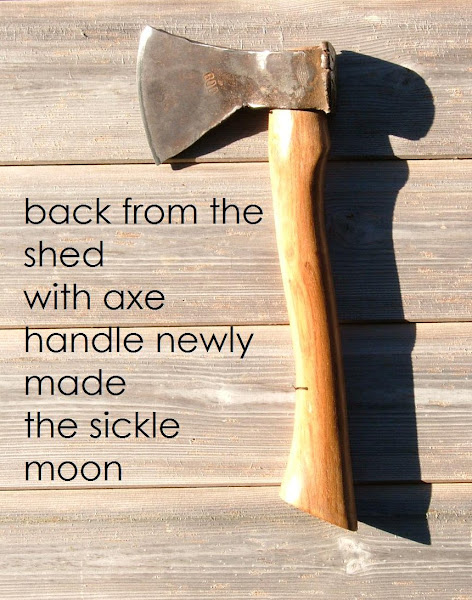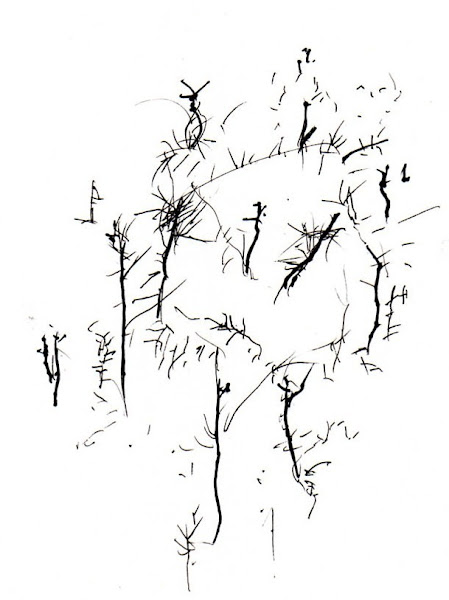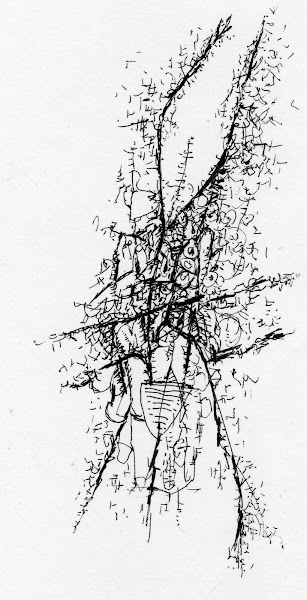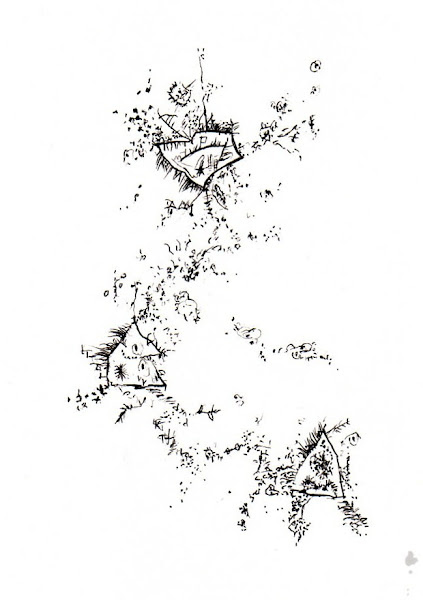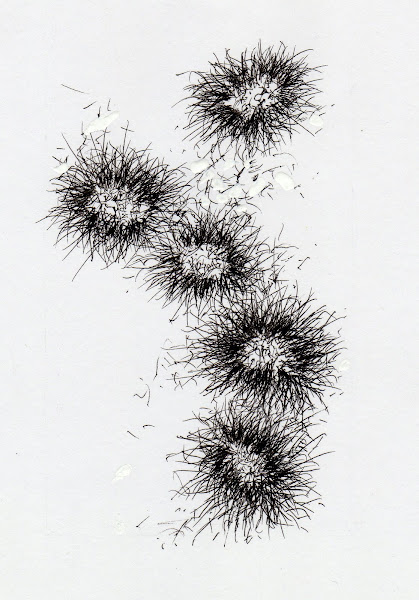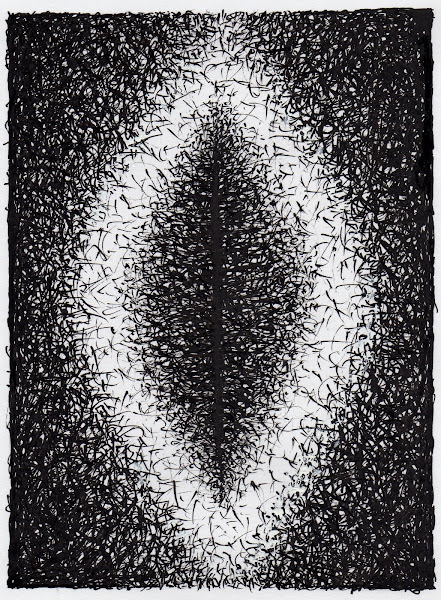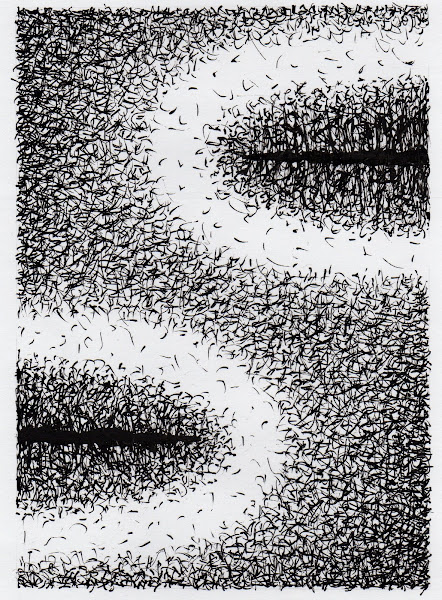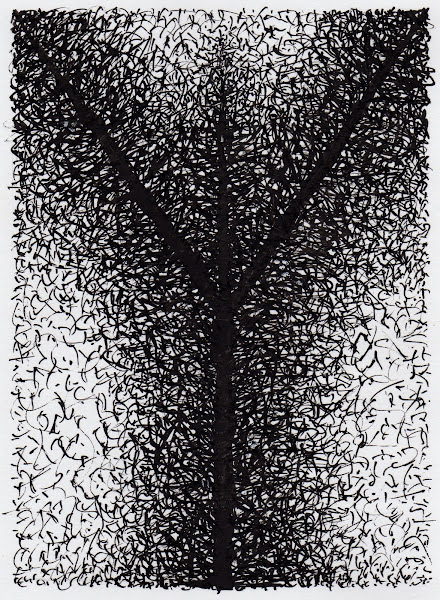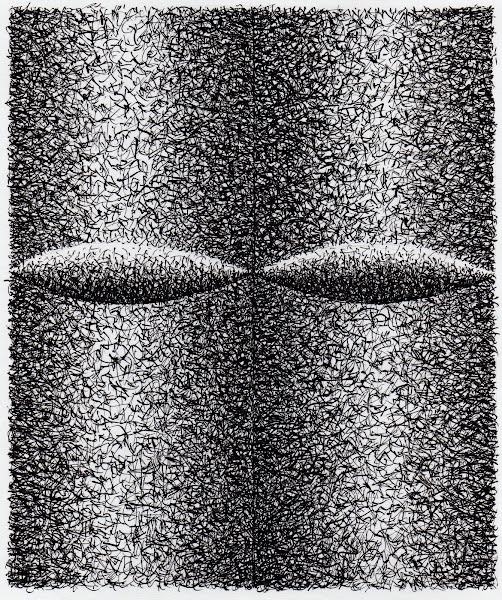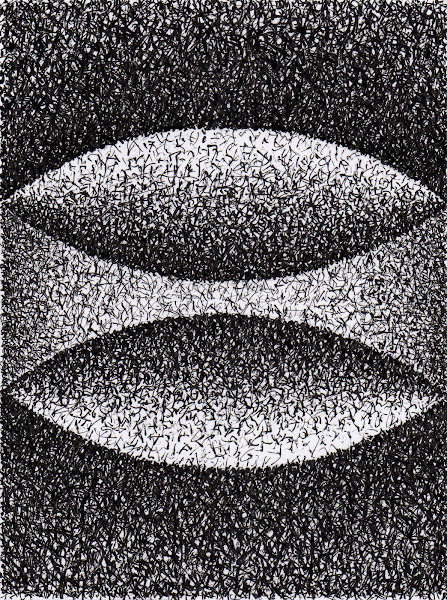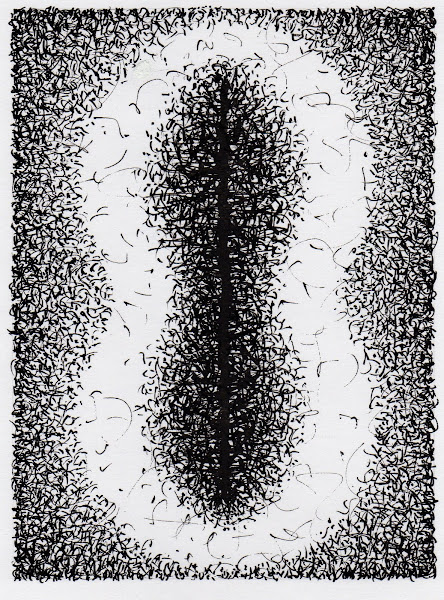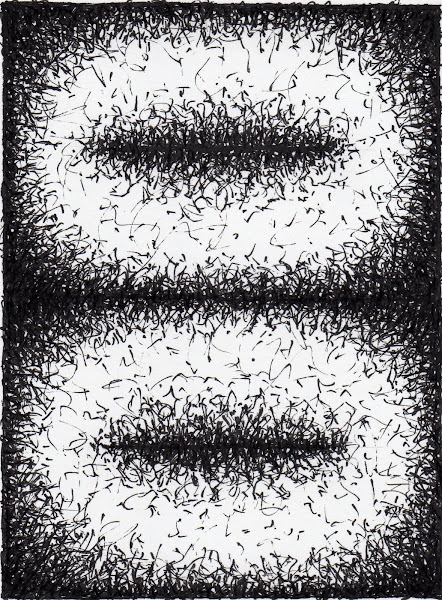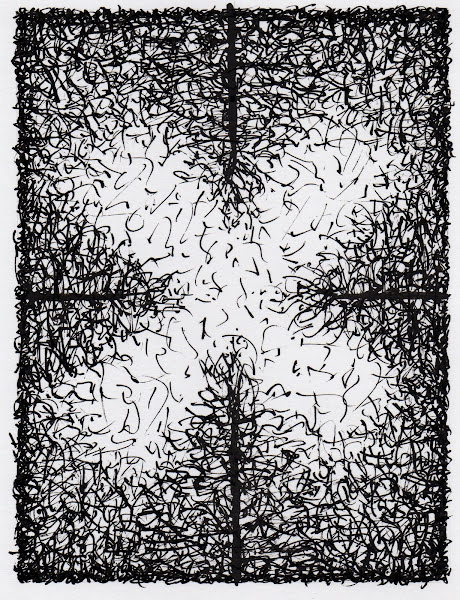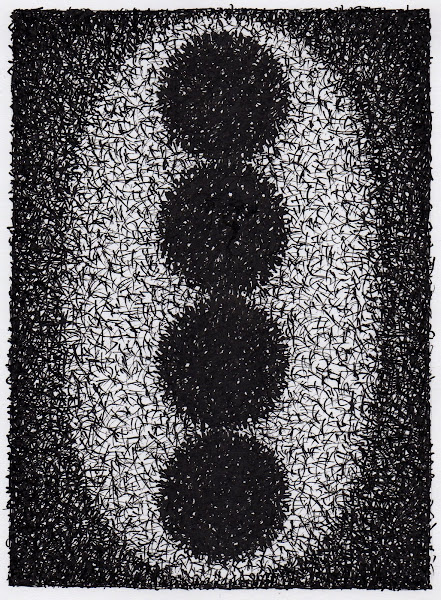.
Patricia Prime's review in KOKAKO 23 September 2015
Dark Seeds Fallen by John Parsons
Labyrinth Press, (2015) Pb. 72 pp, ISBN 978 1 872468 846. For purchases,
please email the author for details of purchase at jparsons100@googlemail.com
reviewed by Patricia Prime
John Parsons is an artist and writer living in Norfolk, UK. Dark Seeds Fallen is his sixth book of haiku. This selection of haiku is illustrated with the author’s black and white drawings.
The most obvious characteristic of John Parson’s haiku is its sensuous nature, as we see in the title poem, which begins the collection.
dark seeds fallen
honesty becomes
more transparent
Nature, beauty, sight and sensation are evoked with a compelling immediacy. This gives the haiku an intoxicating quality. Where it is leading, in the first instance is to more haiku with the same qualities, bringing in other senses and sensations: touch, smell, sound and emotions. Relationships, with other people and loved ones are also present.
white sun through mist
she catches my smile
and returns it
From here to the book’s final haiku:
sickle moon
through ranks of sweet corn
slides a fox’s brush
All our senses are cajoled, pampered and stimulated as we follow the poet on a journey through the seasons and countryside of his Norfolk home. Indeed, this last haiku is a measure of how far the poet can take us.
The core of the book is a series of haiku dealing with nature and the seasons, although ‘dealing with’ is an inadequate phrase with which to describe the way these topics meld with both the wider world and the poet’s masterful command of language.
The following haiku is a good example, bringing words such as ‘horned’, ‘naked’ and ‘quicksilver’ together and, at the same time, moving out from the simple subject to the universal:
horned moon
the naked pollard shivers
a pool of quicksilver
Similarly, in an otherwise very different haiku:
snorting saliva
the great red bull eyes me
with indifference
Words like ‘snorting’, ‘great red bull’ and ‘indifference’, present us with the scary truth of the angry beast.
The following haiku:
old war defences
a snake skin sloughed
across barbed wire
presents us with thoughts of life and death (all too familiar from war footage on TV). Here it is only a snake’s skin caught on barbed wire, but an image which the haiku might bring to mind is that of a battlefield.
The collection ranges widely, from birds, butterflies and flowers to the poet’s personal life and emotions, as in the following haiku with its intimate scene:
I zip her up
brush her down
she offers a cheek
No matter the setting: garden, bus queue, beach, river, workshop or sea, Parsons’ descriptive touch is sure, his landscapes are even better when peopled by characters he delineates with warmth, humour and empathy. The old ladies, the old salt, a lone walker, his mother, a wedding party are minimally but powerfully sketched as we see in the following haiku:
outside the pub
small boy talks to himself
on walkie talkies
This is a collection to savour, not just for its delights but for its insights into the richness that lies beneath the surface of our lives. It is one of the most significant things about haiku that it focuses on the ‘moment’; the greatest haiku achieve this seamlessly and simultaneously. Haiku that do so effectively are rare enough, and to read one of ‘Parsons’ collections that achieves this so effortlessly is a privilege,

